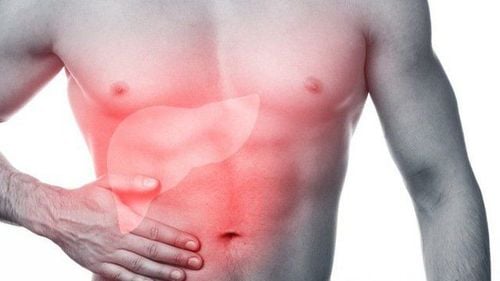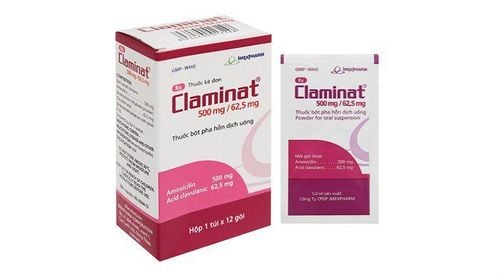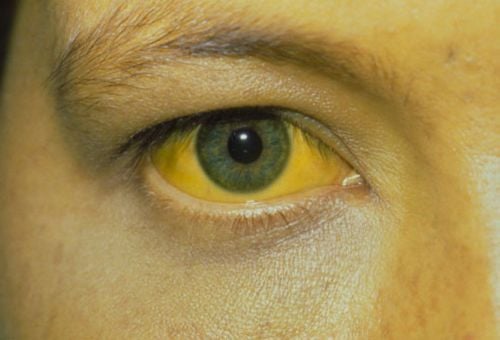This is an automatically translated article.
The article is professionally consulted by Doctor Vo Thi Thuy Trang - Gastrointestinal Endoscopy - Department of Medical Examination & Internal Medicine - Vinmec Da Nang International Hospital. Doctor has nearly 20 years of experience in the field of gastroenterology - Hepatobiliary tract.Acute liver failure is a complex disease that causes loss of liver function. The disease develops rapidly within a few days. If acute liver failure is not properly treated, the mortality rate is very high.
1. Overview of acute liver failure
1.1 What is acute liver failure? Acute liver failure is a state of massive damage to liver cells due to various causes leading to an acute clinical picture with the following manifestations: jaundice, coagulopathy, hepatic encephalopathy (hepatic coma) ), multiple organ failure... in a person with previously normal liver function.Acute liver failure has a high mortality rate, up to 50 - 90% if not treated appropriately.
1.2 Classification of acute liver failure Divided by Lucke and Mallory, divided into 3 stages:
Prodromal: The stage without jaundice. Intermediate stage: Marked by the appearance of jaundice. End stage manifestations of hepatic encephalopathy. Classic clinical classification, based on the time interval from the manifestation of jaundice to the appearance of hepatic encephalopathy:
fulminant liver failure 7 days. Acute liver failure 8 - 28 days. Subacute liver failure 5 - 12 weeks. Hepatic encephalopathy is divided into 4 levels:
Grade I: Excitement or depression, slurred speech, slight confusion, sleep disturbance, slight tremor. Grade II: Drowsiness, disorientation, gloom, tremor. Grade III: Lethargy, but still responsive, hyperreflexia, frequent tremors. Grade IV: Deep coma, no tremor.

2. Causes of acute liver failure
2.1. Microbial causes Due to hepatitis A, B, C, E viruses, of which hepatitis B virus is the most common cause in Vietnam. Other viruses: Cytomegalovirus, Herpes, Epstein Barr, Chickenpox. Bacteria: Found in patients with severe infections and septic shock, the rate of liver damage and acute liver failure is 20-25%. Parasites: Malaria, liver flukes, worms. 2.2. Due to Drug Intoxication: Paracetamol is the most common drug in poisoning leading to acute liver failure, even at the usual therapeutic doses in alcoholic patients, or when used in conjunction with drugs metabolized by the enzyme Cytochrome 450, for example such as anticonvulsants. Other drugs: Isoniazid, Rifampicin, Non-Steroid Anti-Inflammatory Drugs, Sulphonamides, Phenytoin, Tetracycline, Allopurinol, Ketoconazole, MAO... Poisoning with traditional medicines, especially drug preservatives. Types of molds: Typically, Amianita phalloides.Other causes: Acute fatty liver syndrome in pregnant women. Large vessel occlusion in the liver. Reys syndrome.
3. Diagnosis of acute liver failure

Poisoning with sedative-hypnotic drugs. Hypoglycemia. Coma increases osmotic pressure. Stroke. Other neurological diseases. Exacerbation in a patient with chronic liver disease (due to viral hepatitis, alcoholic cirrhosis, autoimmune hepatitis, liver disease caused by metabolic disorders...).
4. Is acute liver failure dangerous?
Although acute liver failure does not cause rapid death, but has a high mortality rate, if not treated properly, many complications will occur, including:4.1 Complications of cerebral edema This is a condition Fluid overload creates great pressure in the patient's brain.
4.2 Bleeding complications and bleeding disorders When the liver fails, it will not be able to produce enough factors to help the clotting process take place smoothly, so it will cause bleeding, bleeding disorders, especially is bleeding in the gastrointestinal tract.
4.3 Infectious Complications Patients with severe acute liver failure who are not promptly treated are more likely to develop infections, especially respiratory tract infections, blood infections, and urinary tract infections.
4.4 Complications of kidney failure Renal failure complications often occur after a patient has liver failure, especially if the patient has ever taken an overdose of acetaminophen that will cause severe liver and kidney damage.
4.5 Neurological complications Hepatic encephalopathy, also known as hepatic coma, is a common complication of acute liver failure, which causes loss of brain function when the liver is unable to remove toxins from the blood. Hepatic coma causes disturbances in consciousness, behavior, and coma.
5. Treatment of acute liver failure
Treatment for severe acute liver failure is done in the intensive care unit. The doctor will base on the patient's liver damage to come up with a treatment plan, in many cases, the treatment may involve controlling complications and needing to wait for the patient's liver to heal. recover. Treatment of acute liver failure includes:Anti-poisoning drug therapy: Patients who treat acute liver failure with anti-poisoning drugs will be prescribed an overdose of acetaminophen treated with a drug called an anti-poisoning agent. poison. This medicine may also help treat other causes of acute liver failure. Treatment by liver transplant technique: In case patients are treated for severe and irreversible liver failure, the only treatment method is liver transplantation. The surgeon removes the damaged liver tissue from the patient and replaces it with a healthy liver from a donor. In addition, when treating acute liver failure, the doctor will control and closely monitor the signs and symptoms in the patient to prevent complications caused by acute liver failure by reducing intracranial pressure due to overload. fluid in the brain, screen for infection, and prevent major bleeding.
6. Prevention of acute liver failure
To effectively prevent acute liver failure, the first thing is to be careful when using drugs to treat the disease. In addition, to prevent acute liver failure, it is necessary to:Use the right medicine, at the right dose, avoid overusing the drug and take it not as directed by the doctor. Vaccinate against hepatitis and limit the transmission routes of hepatitis such as sharing needles, using condoms when having sex. Build a healthy lifestyle, don't drink alcohol and don't smoke. A safe diet with fresh food will help protect a healthy liver, say no to mushrooms when their origin is unknown. In addition, it is important to maintain a stable weight. In summary, acute liver failure is a complex disease causing many dangerous complications such as hepatic coma, if not properly treated, the risk of death is very high. Therefore, when you see any unusual signs such as loss of appetite, fatigue, jaundice, etc., it is necessary to immediately go to medical facilities for timely examination, diagnosis and treatment.
Please dial HOTLINE for more information or register for an appointment HERE. Download MyVinmec app to make appointments faster and to manage your bookings easily.














